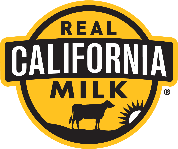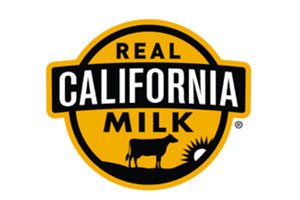California Dairy Innovation Center Announces Q2-Q3 2024 Schedule of Dairy Products & Innovation Training Opportunities
Courtesy of the California Dairy Innovation Center
The California Dairy Innovation Center (CDIC) will be hosting Spring and Summer training programs for processors, producers, dairy industry professionals, entrepreneurs, educators, and students as well as health professionals. The courses, which have no pre-requisites, will be held at a variety of California locations and are open to all participants.
The schedule of courses includes:
Dairy Foods Technology 101 will take place May 30, 2024, in Novato, Calif.
This course is a free educational event open to all California dairy processors and end-users, dairy entrepreneurs, producers, faculty and students in food science, agribusiness, and related fields, as well as qualified suppliers to the industry. It is ideal for individuals who are early in their careers in dairy products processing, entrepreneurs, and employees in production, operations, management, sales and marketing, research and development, and quality assurance roles within the industry.
This course aims to educate attendees on the intricate processes behind dairy products creation, from the fundamentals of milk production to key unit operations for fluid milk, cream, butter, cheese, cultured products and concentrated or dried dairy products, as well as sensory science and food safety. Led by industry experts, participants can expect to learn about the science involved in turning dairy milk into classic as well as innovative dairy products, gain a solid understanding of processes and the importance of these steps to ensure quality and safety. Attendees will have the chance to engage in interactive demonstrations, ask questions, and network with fellow participants who share their passion for dairy.
No pre-requisites are required. To receive a detailed program, information on area hotels, and to register, send name (or that of any participating employees), title(s), company name, phone number and email(s) to vlagrange@cmab.net or nvanbuskirk@cmab.net by May 25th. Full program details about the workshop can also be found on the CDIC website at cdic.net.
Yogurts, Fermented Milks and Probiotic Dairy Products, which will take place June 20-21, 2024, at UC Davis is a collaboration between the CDIC, UC Davis, Dairy Council of California, and the California Dairy Research Foundation. During the course, attendees will learn from leading experts who possess extensive experience and expertise in dairy science, nutrition, and food innovation. This course will not only cover the fundamentals of processing but will also highlight the latest nutrition research and product innovations shaping the sector, market trends and opportunities.
During the course, attendees can expect to delve into such topics as:
- Latest research on the nutritional benefits of probiotics and fermented milk products.
- Market trends, types of fermented milks and market opportunities for California processors.
- Fundamental principles of milk fermentation and yogurt production.
- Innovations in processing technologies and product development, including lactose-free, clean label and reduced sugar products.
The course is designed for dairy industry professionals, dietitians and nutritionists, food scientists, researchers, educators, and individuals interested in expanding their understanding of fermented dairy products. With a blend of lectures, hands-on demonstrations, and lab tours on campus, participants will gain practical insights and valuable knowledge that can be applied in both academic and industry settings. The event is modular, and registration covers all three sessions, meals and refreshments, and a networking reception. For more information, please contact vlagrange@cmab.net or nvanbuskirk@cmab.net.
There are no pre-requisites required. Registration (free for health professionals) and additional information can be found at https://www.eventbrite.com.au/e/short-course-yogurt-fermented-milks-and-probiotic-dairy-products-tickets-867978094847.
Save the Date:
Advanced Cheesemaking: July 16-17. This two-day practical, hands-on course will take place at the Dairy Products Technology Center, Cal Poly, San Luis Obispo.
Registration: https://dairy.calpoly.edu/short-course-symposia
2nd Annual Innovation Workshop & State of the Industry: September 12, at Fresno State.
Registration: www.cdic.net
Hispanic, Italian and Mediterranean Cheeses: October 8-9. This practical course will feature international cheese varietals and will take place at the Dairy Products Technology Center, Cal Poly, San Luis Obispo.
Registration: https://dairy.calpoly.edu/short-course-symposia
Short course and conference programs are co-organized with California Milk Advisory Board’s CDIC, with partial funding and contributions from Dairy Management Inc., the USDA’s Pacific Coast Coalition Dairy Business Innovation Initiative (hosted by Fresno State) and CMAB. Programs are subject to change. For more info about the CDIC and its educational opportunities, contact vlagrange@cmab.net.












